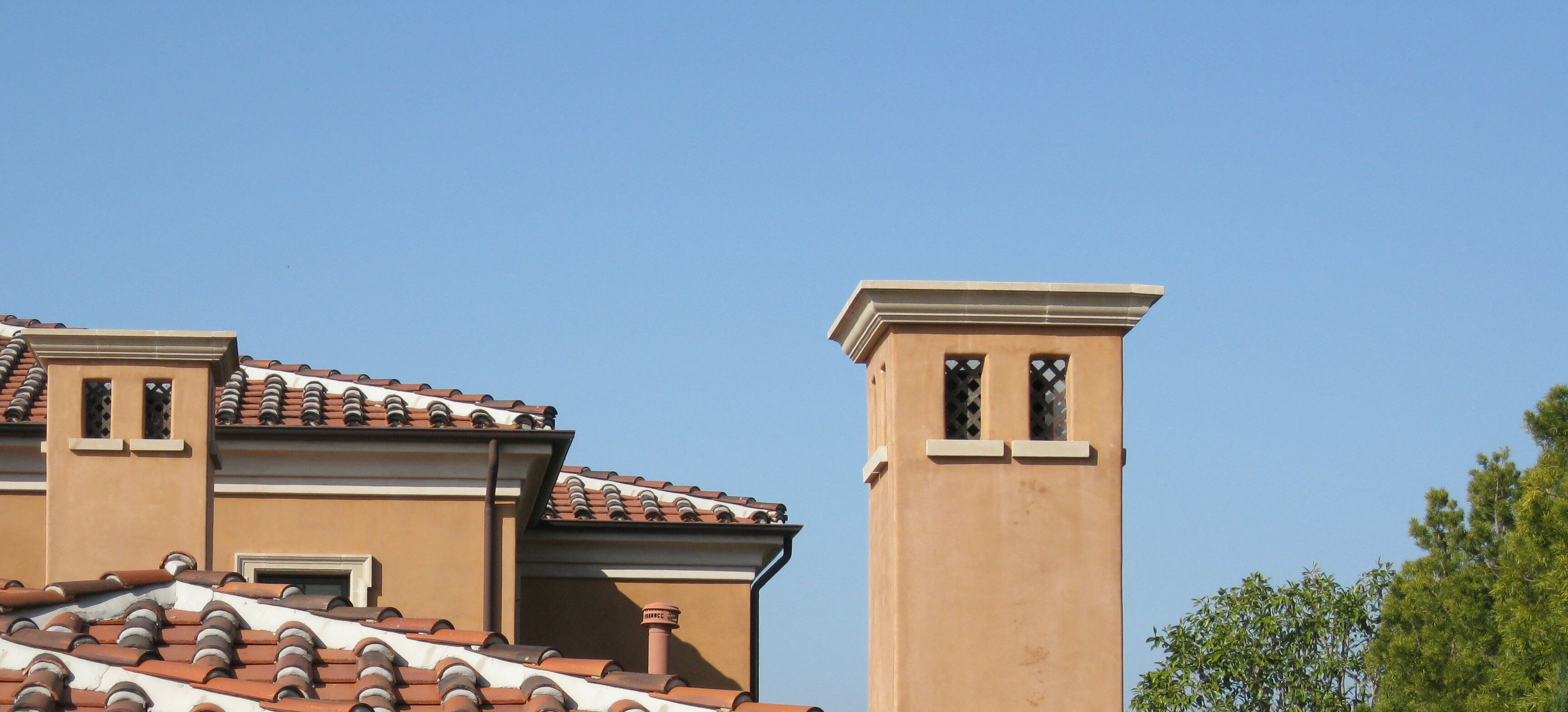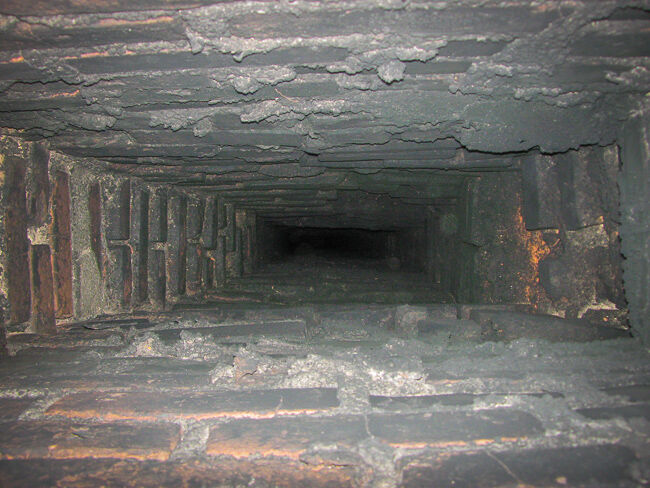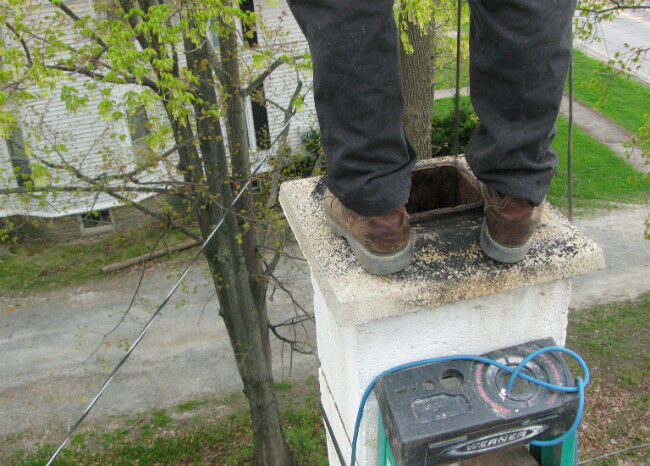Last Updated: August 10, 2023
As the end of winter draws nearer and you’re getting ready to retire your fireplace for the season, it’s time to start thinking about scheduling your annual chimney cleaning and inspection.
Your fireplace and chimney may look perfectly fine from the outside, but there could be a whole host of issues going on inside that can affect how well the chimney works and the safety of your home.
Routinely taking care of your chimney at the end of the burning season, rather than waiting until fall, will give you plenty of time to address and repair any problems your chimney may have.
Read on to discover the top 5 reasons why we recommend getting your chimney cleaned in the spring!
#1 CHIMNEY FIRES
Most chimney fires are so small they go unnoticed. In fact, you may not realize you’ve had one until your next chimney inspection.
The main cause of chimney fires is the buildup of creosote. Creosote is a highly-acidic residue that’s created when hot combustion byproducts mingle with cool air in the chimney and produce condensation. This condensation sticks to the interior walls of the chimney, leaving a residue.
Creosote can range from brown to black in color and have a consistency that’s light and flaky, sticky and tar-like, or smooth, shiny, and hard. Hard creosote is the most advanced and can cause extensive damage to your chimney, or even lead to a blockage if it’s not removed.
Creosote is highly combustible and if left to accumulate, a chimney fire can and will occur. The very best way to prevent creosote buildup, and ultimately a chimney fire, is to have your chimney inspected and cleaned by a licensed chimney sweep, at least once a year.
#2 BLOCKAGES, BUILDUP, & DEBRIS
Soot and creosote buildup, bird and critter nests, and other debris can create blockages in your chimney. Having your chimney inspected by a licensed professional will ensure these get taken care of before they cause a major problem, such as blocked airflow, a chimney fire, or a deadly house fire.
Wood, gas, and oil fireplaces, furnaces, and stoves can produce a variety of toxic air pollutants and combustion byproducts, such as smoke, carbon dioxide, nitrogen dioxide, soot, acidic water vapor, tar fog, and hydrocarbons. A properly functioning chimney ensures these toxic gases are safely carried out of the home.
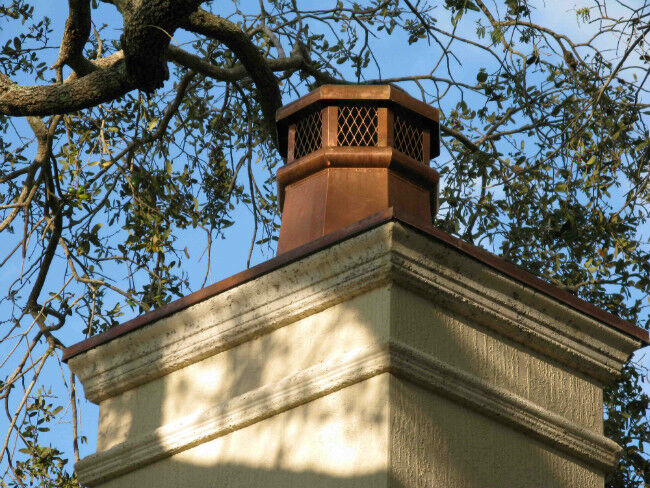
Leaves, twigs, and other debris can fall into your chimney, creating a blockage. Keep low-hanging trees trimmed away from your chimney and install a chimney cap.
If your chimney has a blockage or something is constricting the airflow, then toxic gases won’t be able to escape properly and will leak back into your home. A buildup of toxic gases can cause a potentially deadly situation, such as carbon monoxide poisoning.
You can easily prevent chimney blockages and ensure the health and safety of your home environment, by maintaining a regular cleaning schedule.
#3 ODORS
If you’ve noticed an increase in odor coming from your fireplace, you may have an excessive buildup of creosote, soot, or another residue.
The buildup of residue or blockages in your chimney can lead to odors – even when your fireplace isn’t in use.
Clearing out any buildup at the end of the burning season will significantly reduce the amount of odor emanating from your fireplace during the spring and summer months while increasing airflow and improving overall air quality.
#4 DAMAGED FLUE TILES, LINER, & MORE
Broken or damaged flue tiles, a cracked chimney liner, a warped damper, and any other inconsistencies in the interior and exterior of your chimney all contribute to poor chimney performance and, in some cases, will result in a house fire.
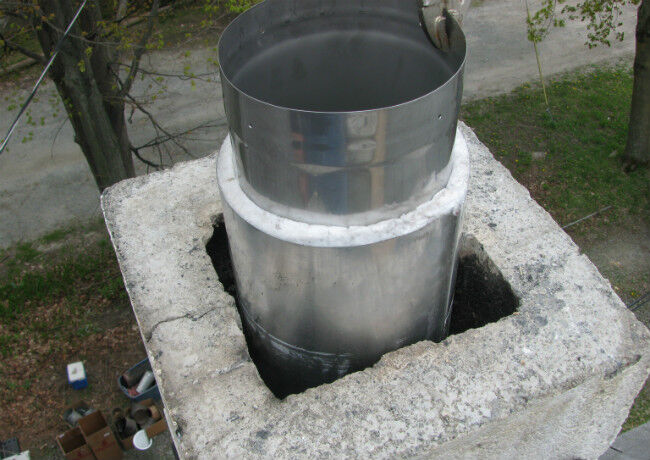
Stainless steel liners are an affordable way to repair damaged masonry chimneys.
Having your chimney inspected at the end of the burning season will alert you to problems your chimney may be experiencing and will give you enough time to get them fixed before the start of the next burning season in the fall.
#5 WIDER AVAILABILITY OF CHIMNEY SWEEPS
If you’re proactive about scheduling your chimney inspection during the spring, chances are you’re going to have a much easier time finding a chimney sweep who can accommodate your schedule.
Chimney sweeps tend to be extremely busy during the fall since the majority of people wait to get their chimneys cleaned and inspected right before burning season begins. You can avoid the stress of the busy season altogether by scheduling your cleaning during the springtime!
Being proactive about chimney maintenance will not only keep your fireplace and chimney in good working order but will also keep your home and family safe from potentially life-threatening situations, like fires or carbon monoxide poisoning.
Give yourself the ease of mind you need to enjoy a lovely roaring fire on the very first cold day of the year by making chimney maintenance a priority this spring season!
WE'RE HERE TO HELP
Do you have more questions about how to clean your chimney? We'd love to help! Call our team of NFI Certified experts today at (844)284-0506 today!
MORE RESOURCES:
Check out this customer spotlight featuring our outdoor fireplace on a dreamy open-air deck!
Read our top fire pit maintenance & safety tips to keep your fire pit burning for years to come!
If you're thinking about buying a ready-to-finish outdoor kitchen, read our buying guide for everything you need to know!
